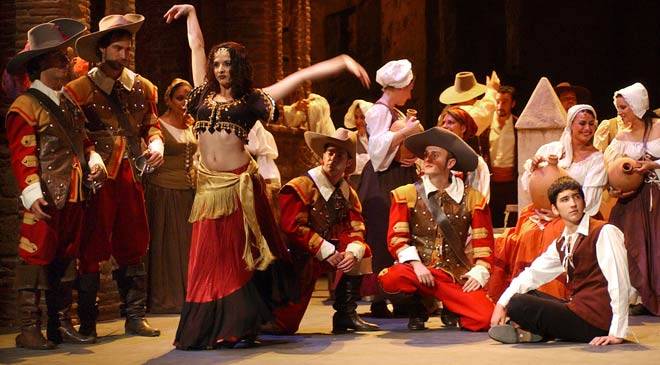Spain and Catalonia have always stood apart from the mainstream of European culture, doing things after their own fashion. Among these distinctions was their fondness, over several centuries, for zarzuela, an alternative to Opera, with its own styles and conventions. While zarzuelas were staged as early as the mid-seventeenth century, they reached their apogee of popularity and artistic glory in the early 20th century, and were still going strong decades after opera had ceased to be broadly popular. There are distinctive styles of zarzuela sung in Catalan (sarsuela) and in Basque (zartzuelak). The romanzas of this kind of music-drama are the equivalent of opera’s arias.
Rolando Villazón, an operatic tenor who is currently in great demand, is very much at home in this variant tradition. With his mighty tenor colleague and compatriot, Placedo Domingo, holding the baton of the Orquestra de la Comunidad de Madrid, Villazón produced a fine selection of romanzas for Virgin Classics, under the title Gitano, released in 2007. The selections are representative of the later phases of zarzuela compostition, and include works by José Serrano, Federrico Moreno Torrobá (who is better known outside Spain for his guitar compositions), Jacinto Guerrero, Pablo Sorozábal, Amadu Vives, Pablo Luna, Augustin Pérez Soriano, José Maria Cano, Reveriano Soutullo and Juan Vert.
In their casual charm, these “arias” are closer in feeling to Broadway solos than to the thunderous shouting matches of Italian opera. Some of them would not feel out of place in Oklahoma or Seven Brides for Seven Brothers. I would not be surprised if some of the classics of the genre could be successfully filmed, and reach out to a world audience. Better yet, this art form, which fell into decline during Franco’s dictatorship, could be adapted to the wealth and dynamism of modern Spain and Catalonia, through entirely new works. Zarzuelas always incorporated currently popular song. There’s no reason why contemporary pop music, or even rai, hiphop, electronica and dance, could not play the same role in new works.

0 Comments.